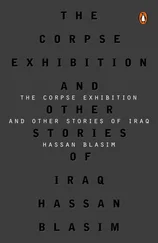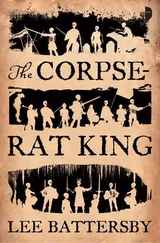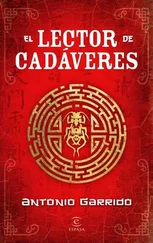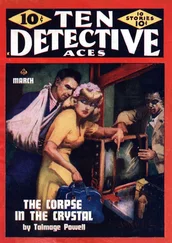Cí felt his pulse quicken. Though he now had the plaster positive of the hand cannon as a part of his defense, he still felt danger was all around him.
While he waited for Feng to return, he asked a servant to bring him the copy of the Ingmingji , Ming’s book on judicial processes, from his room. Given that he was going to have to defend himself in the court, he thought he should read up on similar cases.
The servant brought the book, and Cí skipped straight to the part about legal disputes. Ming had compiled lawsuits representative of every area of law: the first two-thirds of the book were taken up with inheritance disputes, divorces, commercial transactions, and disagreements over boundaries, but the last third was exclusively about prominent penal cases—notable either for the significance of the crime itself or for the brilliance of the judge’s argument. These were the cases that interested Cí. Ming had provided extremely clear commentaries on the progress of each of the cases—beginning with a brief overview of the crime and continuing with the full crime report, the judge’s investigations, any further fieldwork, the judgment and sentencing, and then any appeals and details of the execution of the sentence. Just as any attempt on the emperor’s life—or the lives of any in his retinue—was punishable by death, so were arms trafficking offenses. This did little to calm Cí.
As he was running through these summaries, he came to one that stopped him cold:
An account of the inquiry carried out by the right honorable Judge Feng on the slaughter of a country peasant in a rice field and the surprising resolution of the case through the observation of flies around a sickle. Date: third moon of the seventh month, thirteenth year of the reign of Xiaozong.
Cí checked the date again. He couldn’t believe it.
In the account, Feng, then a new member of the judiciary, had won wide acclaim for the shrewdness he’d demonstrated in a case—a case that was all too familiar to Cí. The criminal had been flushed out from dozens of suspects by lining up all their sickles in the sun, placing a slab of meat nearby to attract a swarm of flies, and shooing them so that they flew over and gathered around the one sickle that had blood on it.
Cí shut the book. He felt as though demons had taken up residence inside him, and his hands trembled violently. Xiaozong was the current emperor’s grandfather, and in the thirteenth year of his reign, Cí worked out, Feng would have been thirty. But this account was exactly the same as his brother’s case. An exact replica.
His vision went blurry.
He read the case through again, all the while asking himself how he could have been so stupid. How could he not have seen it? His brother had been found guilty not because of the chance appearance of a swarm of flies, nor because of Feng’s astuteness. On the contrary, thought Cí. The whole thing must have been a setup. Someone had used the exact same strategy before. And that someone was Feng.
But why?
Thinking Feng must still be somewhere in the pavilion, Cí headed out to find him. But when he came to the exit, a servant he hadn’t seen there before blocked his way. Cí could see the man was a foreigner, and he looked familiar, but it took him a few moments to remember—he was the same Mongol aide who had accompanied Feng when he came to the village.
The Mongol stood in front of Cí. “Master says you are to stay here,” he said.
Cí knew that even if he were at full strength he wouldn’t have a chance against the well-built Mongol.
He went back to Feng’s room and shut the door behind him. Then he went over to the window. Two sentries had been posted outside, and he didn’t think he’d survive the jump anyway. Not in his state.
Aside from the desk and the bamboo sofa, all Feng’s room had in it was books. Pacing around, Cí saw that not all of them were on legal matters, though. One corner was dedicated entirely to books on salt. He knew Feng had left the judiciary to concentrate on bureaucratic tasks related to salt, and he also knew, of course, that Blue Iris’s family business was salt export, but such a collection of writing on one subject suggested far more than a merely professional interest. Cí took a closer look. Most of the books were on extraction processes, possible applications of the substance, and commerce, and there were a few on salt as a seasoning, for preservation, and in medicine. There was one book with a green cover that stood out to Cí, and when he pulled it off the shelf and saw the title, he could hardly believe it: it was the Ujingzongyao , the book on military techniques about which he’d told Feng just moments before—and about which Feng had claimed to have no knowledge. He ran a finger along the book spines until he came to one that was jutting out slightly. Cí wondered if this meant Feng had consulted it recently, and he decided to have a look.
At the very first paragraph, his blood froze. In fact, it was nothing but a list of accounts detailing the buying and selling of consignments of salt, but it was the handwriting, the distinctive style of the calligraphy, that caused Cí to shudder. He could have written it himself. But he knew that wasn’t the case. The name and the signature at the end of each balance sheet were not his own, but his father’s.
He went on reading the accounts, barely knowing what he was doing.
They went back over a five-year period. In fact, they contained the exact same numbers as the volume he’d consulted in the finance archives. This was some kind of parallel account, identical to the original. Cí closed the volume and ran his fingers over the page edges. Most of the pages were closed tightly together, but two parts of the book were less so—the parts Cí thought must have been consulted most often. He opened the book at the first of these sections, finding the numbers there had to do with the same strange fluctuations he’d found originally in Soft Dolphin’s file. He went to the other well-thumbed section, examined the numbers closely, and found that the pattern was similar, with profits dropping to an all-time low. From that day on, it was no longer Cí’s father’s signature on the pages, but Soft Dolphin’s.
He squeezed his eyes shut so tightly that he felt as if his eyeballs were going to burst. What could it all mean? He went over the numbers again but couldn’t understand.
Suddenly there was a noise behind him; he hurriedly tried to return the book to its place but dropped it in his nervousness. In the very same instant that Cí picked the book up off the floor and slotted it back in place, Feng came in carrying a tray of fruit. Although Feng didn’t seem to have noticed his hurried movement, Cí saw to his horror that a page had fallen from the book. With his foot, he slid it under the base of the bookshelf.
“Have you finished your notes?” asked Feng from the far end of the room.
“Not quite,” lied Cí, hurrying over to the desk and stuffing the authorization he’d written into his sleeve. He began writing again, but Feng noticed that he was trembling.
“Has something happened?”
“Nerves,” he said. “The trial.” He rewrote the authorization for Feng to give to Sui and handed it to Feng.
“Here, have some fruit,” said Feng. “And I’ll go and get the plaster hand cannon.”
On his way out, he stopped to ask again if Cí was all right. Cí murmured that he was.
As Feng turned again to leave, shrugging, Cí noticed that something had caught his eye—something in the library. Feng went straight over to the shelf where Cí had been. Alarmed, Cí noticed that the sheet he’d tried to hide was poking out from under the bookshelf. Surely that was what had drawn Feng’s attention. But Feng lifted his hand to the book itself. Cí held his breath. The book was upside down. Feng frowned and put it back the right way up, leaving it, as before, jutting out a little from the rest. Then he bid Cí farewell and went out.
Читать дальше












